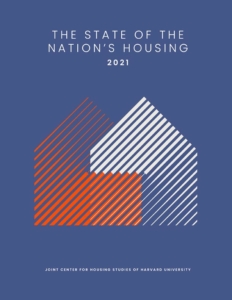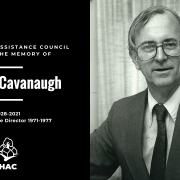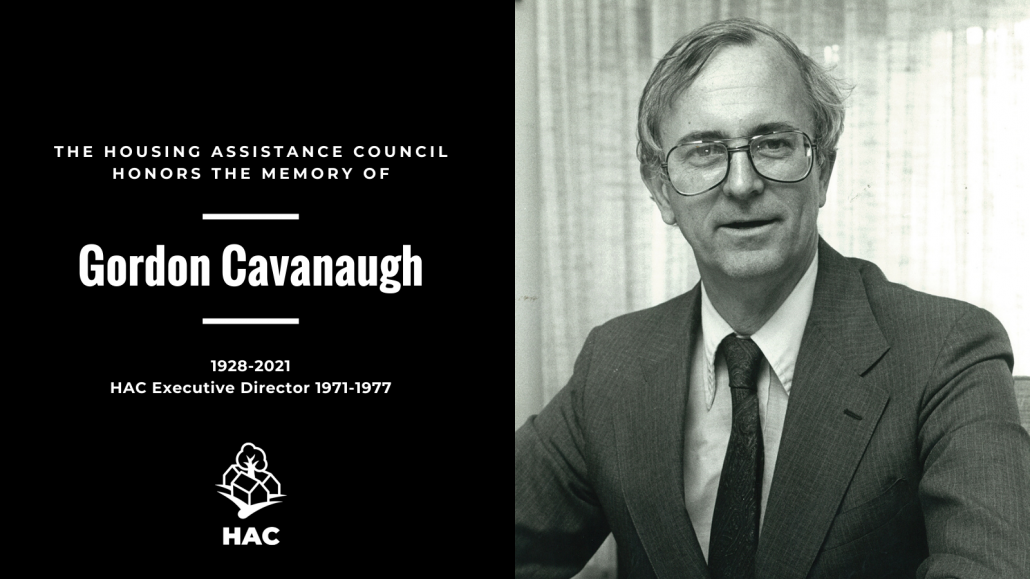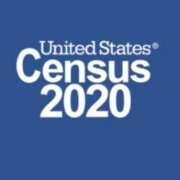Vol. 50, No. 14
TOP STORIES
Federal agencies extend many housing protections to July 31.
The Centers for Disease Control eviction moratorium for renters was extended through July 31. USDA, VA, FHA, and Fannie Mae and Freddie Mac have extended their foreclosure moratoriums for homeowners through July 31. Homeowners with loans made, insured, or guaranteed by those agencies can also request forbearance (a delay in making mortgage payments) at least through July 31 and in some cases after that. The administration has stated that it does not expect to issue further extensions.
State, local, and tribal agencies have funds available to cover rent and other housing needs from two rounds of the Emergency Rental Assistance Program, as well as other federal relief. The Treasury Department updated its ERA guidance on June 24.
Information is available from many sources, including these:
Supreme Court leaves eviction moratorium in effect.
On June 29 the Supreme Court issued an opinion keeping the CDC moratorium operational while a federal appeals court considers a challenge to its constitutionality.
House committee approves USDA FY22 appropriations bill.
On June 30 the House Appropriations Committee approved its USDA funding bill, making no changes to the rural housing figures supported by a subcommittee on June 25. The bill proposes to increase funding levels above FY21 levels, and in some cases above the amounts proposed in the administration’s budget, for Section 502 direct and guaranteed mortgage loans, Rental Assistance, self-help housing, the Multifamily Preservation and Revitalization program, and others. Details are posted on HAC’s website, along with language from the committee’s draft report urging USDA to pay particular attention to the needs of farmworkers.
RuralSTAT
In counties outside metropolitan areas, the unemployment rate continued a declining trend to 4.7%. Source: HAC Tabulations of May 2021 Bureau of Labor Statistics LAUS data.
OPPORTUNITIES
Arts organizations from rural areas and Indian Country encouraged to apply for NEA grants.
The National Endowment for the Arts is actively seeking first-time applicants that work in rural America and Indian Country to apply for American Rescue Plan grants to cover salaries, stipends, and general operating costs. Nonprofit arts and culture organizations, local governments, federally recognized tribal communities or tribes, and local arts agencies are eligible, regardless of whether they have received NEA funding in the past. The NEA offers a webinar on July 8 for rural and Indian Country applicants. The deadline for most applicants is August 12. The deadline for arts agencies that will make subgrants is July 22.
Online training will cover energy efficient, affordable housing.
Strategies for Achieving Energy Efficient, Affordable Housing, a HAC webinar scheduled for July 14, will provide insight into energy efficient construction practices, including how to maximize energy efficiency while keeping costs in check. Learn the role of Home Energy Raters in the design and construction process and see the specifications for homes that are achieving varying levels of energy efficiency. Finally, you will see what it takes to achieve a net-zero home – one that produces as much energy as it uses on an annual basis.
Webinar to highlight rural climate-smart solutions.
On July 16, Pathfinders: Climate-Smart Solutions from Rural America and Native Nations will address innovations, including ways rural organizations build and retrofit more energy-efficient homes and offer new community energy options intentionally designed to build more financial stability for low-wealth people. This is the latest in the Rural Opportunity and Development (ROAD) Sessions, virtual exchanges co-designed and hosted by the Aspen Institute Community Strategies Group, HAC, the Rural Community Assistance Partnership, Rural LISC, and the Federal Reserve Board.
HAC seeks Community Facilities Housing Specialist.
The Community Facilities Housing Specialist identifies and engages community stakeholders and provides direct technical assistance to rural organizations that are developing facilities such as parks, community centers, public libraries and childcare centers. This includes helping them identify, utilize, and apply for financial resources such as USDA Community Facilities grants and loans. This is a two-year position and is eligible for telecommuting.
REGULATIONS AND FEDERAL AGENCIES
Comments requested on fair lending policy statement.
The Federal Housing Finance Agency seeks input on a policy statement that is intended to guide the entities it regulates – Fannie Mae, Freddie Mac, and the Federal Home Loan Banks – on their compliance with fair lending laws and regulations. Comments are due September 7. For more information, contact Annalyce Shufelt, FHFA, 202-649-3416.
Administration pledges to address housing for people returning from prisons and jails.
HUD Secretary Marcia Fudge recently clarified that people who are at risk of homelessness after leaving incarceration are eligible for temporary Emergency Housing Vouchers. She noted that recent incarceration and homelessness are often connected and that, because of the racial disparities in the criminal justice system, addressing reentry housing needs helps advance equity. HUD also plans to review regulations, develop new tools, and publish best practices on reentry housing. These actions are part of an administration strategy to address gun crime and ensure public safety.
USDA and others to coordinate broadband funds.
USDA, the Federal Communications Commission, and the National Telecommunications and Information Administration have signed an interagency agreement to share information and coordinate the distribution of broadband deployment funds.
HAC recommends federal actions for rural equity.
HAC recently submitted comments in response to an Office of Management and Budget request for input on whether federal agency policies and actions equitably serve all eligible individuals and communities, including rural residents. Noting that rural and persistently poor places have historically been and continue to be underserved by federal programs, HAC recommended a focus on capacity building, access to capital, and proactive and deliberate tailoring of federal programs to produce lasting rural equity.
PUBLICATIONS AND MEDIA
Guide covers affordable housing providers’ role in addressing natural disasters.
Affordable Housing and Natural Disasters: A Practitioner’s Guidebook, published by the California Coalition for Rural Housing, is intended as a primer on the current state of disaster issues for affordable housing practitioners and a means of familiarizing disaster planners with innovations from the affordable housing sector. It covers the four major phases of the disaster cycle – mitigation, preparedness, response, and recovery – and includes case studies from rural California.
Researchers skeptical about remote work’s economic impact on heartland.
Secondary tech centers and metropolitan areas away from the coasts, rather than distressed smaller places, seem to be benefitting from recent corporate relocations out of major cities, Brookings Institution researchers suggest in an article titled Remote Work Won’t Save the Heartland. Their analysis of data on individual moves shows also that only a fraction of people who moved out of the largest metro areas in 2020 moved to Heartland or Mountain West states.
Hot housing market changes rural community.
The Daily Yonder reports on the positive and negative impacts of the booming demand for market-rate housing in Short-Term Rentals and High-End Buyers Wipe Out Affordable Housing in Joshua Tree, Say Residents.
Need-tested benefits cut child poverty in half, research concludes.
To examine the likely situation after temporary pandemic-related supports end, the Congressional Research Service used data from 2017, a year of economic growth, to estimate the impact of assistance such as housing and food aid that are provided to recipients based on their incomes. Need-Tested Benefits: Impact of Assistance on Poverty Experienced by Low-Income Families and Individuals reports that this aid improves family economic wellbeing by reducing both the prevalence and degree of poverty, particularly for families with children.
Survey finds homeownership disparities largely unchanged over the past year.
NeighborWorks America’s 2021 Housing and Financial Capability Survey, conducted in April, found more Americans said they need guidance on building credit and reducing debt than one year earlier, and more were interested in financial planning classes. Among those who were financially challenged by the coronavirus pandemic, 73% said it would take six months or more to recover, and 46% said it would take a year or more. Socioeconomic disparities in homeownership rates were unchanged over the year, as were obstacles to homeownership.
32% of federally assisted housing at high risk from natural hazards.
In a new report, the Public and Affordable Housing Research Corporation and the National Low Income Housing Coalition examine the risk of harm to project-based federally assisted properties from climate-related events. A larger proportion of these households than of those without housing aid are at high risk of the negative impacts of these hazards and are less likely to have the supplies and resources to evacuate or prepare. The danger is greatest for households of color in assisted housing.
Low-income disaster survivors get less help from FEMA.
Why FEMA Aid is Unavailable to Many Who Need it the Most, a story from National Public Radio, covers FEMA’s failure to equitably serve marginalized racial groups and low-income people after disasters. An internal FEMA analysis of aid requests between 2014 and 2018 found that the poorest renters were 23% less likely than higher-income renters to get housing help. The poorest homeowners received about half as much as higher-income homeowners to rebuild their homes, a disparity greater than the difference in repair costs.
Lack of affordable housing leaves Latinx residents vulnerable to wildfires.
The shortage of affordable housing forces a disproportionate number of Latinx residents in the western U.S. to live in places seriously threatened by wildfire, according to a data analysis summarized by Politico in Wildfires Threaten All of the West – And One Group More Than Others. Latinx people are about 18% of the U.S. population but 37% of those who live in the areas identified as facing the most extreme wildfire risks.
Need capital for your affordable housing project?
HAC’s loan fund provides low interest rate loans to support single- and multifamily affordable housing projects for low-income rural residents throughout the U.S. and territories. Capital is available for all types of affordable and mixed-income housing projects, including preservation, new development, farmworker, senior and veteran housing. HAC loan funds can be used for pre-development, site acquisition, site development, construction/rehabilitation and permanent financing. Contact HAC’s loan fund staff at hacloanfund@ruralhome.org, 202-842-8600.
Please note: HAC is not able to offer loans to individuals or families. Borrowers must be nonprofit or for-profit organizations or government entities (including tribes).


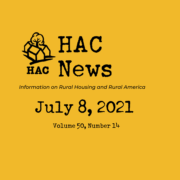
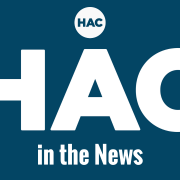
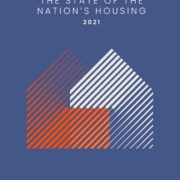 Harvard Joint Center for Housing Studies
Harvard Joint Center for Housing Studies